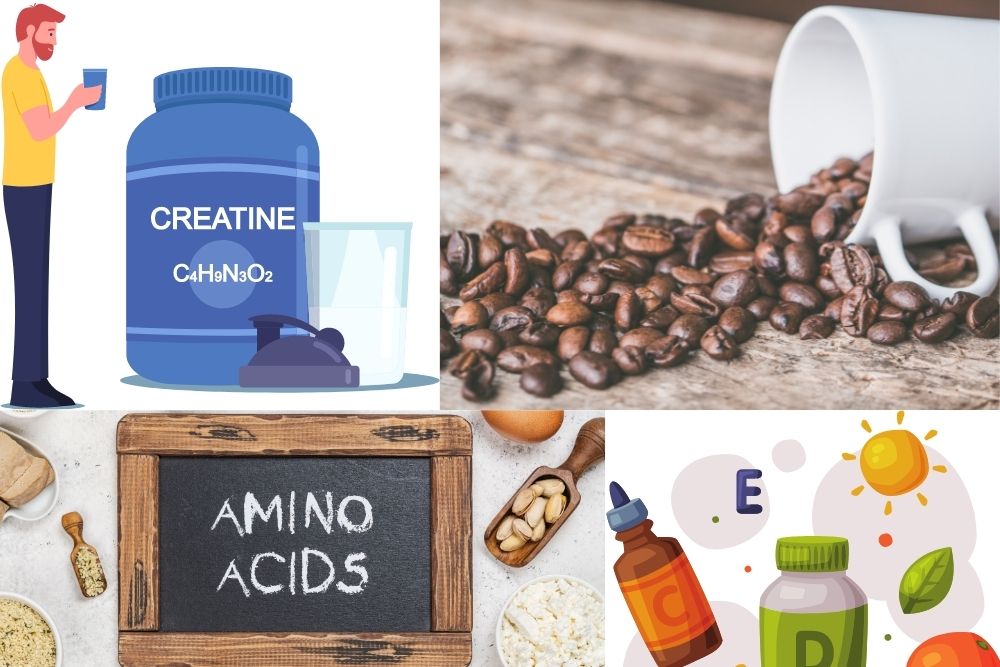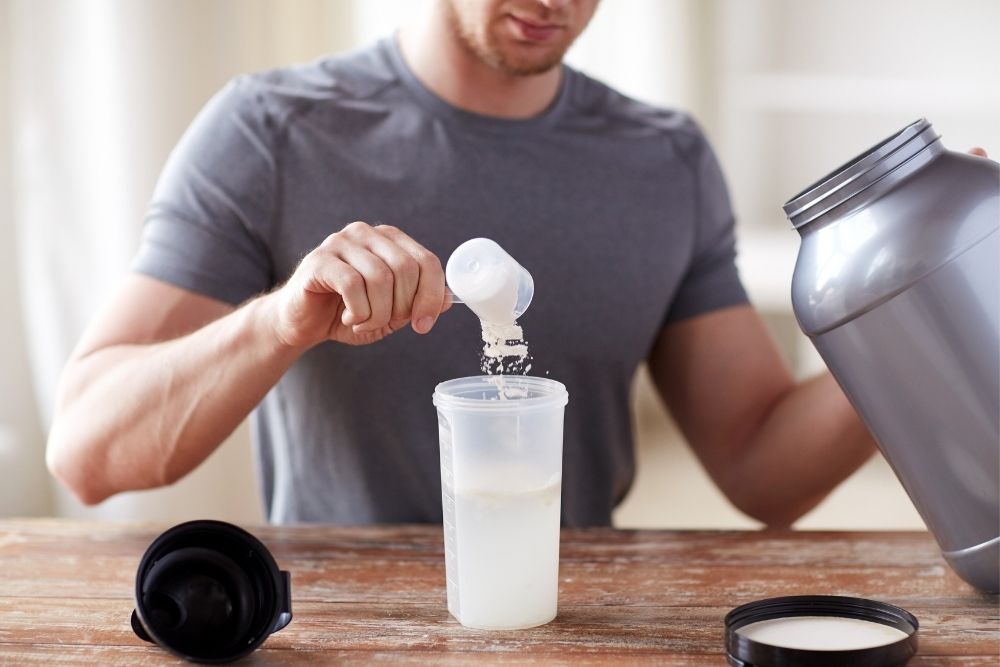Exercise, exercise, exercise. It is one of the solutions that generally come up when one is tasked to advise someone on weight management and maintaining a healthy body. Athletes on the other hand do plenty of it as part of their routine in order to maintain peak performance.
Soccer players are regarded as one of the fittest athletes in the world. Their workout and routines are designed to leave the body lean and mean. A player can play up to 40 matches in a season. This requires a high level of conditioning the body through workouts.
Mainly, soccer viewers, especially those at home get to see the live matches on the television when they start. There is also a glimpse into the images of what happens before the match. They see players sipping things in colored bottles. Maybe it is just water you may think.
It is almost customary in any sport for the athletes to do some kind of warm up before playing the match. I remember in my high school, the coach would make us arrive 30 minutes before the scheduled arrival time and get through our paces.
We always thought it was a cheap mental tactic to throw off our opposition when they arrived. As it turns out, there was a method to the madness when it came to the pre-match tactics and boosters. Let us look at the use of pre-workouts before the games and delve into it.
Quick Navigation
Can you take pre workout before a soccer game?
First, we need to understand what pre-workouts are. Pre workout supplements or commonly shortened to ‘pre workouts’ are a range of bodybuilding supplement products on enhancers used by athletes to boost athletic performance.
- VITAMIN D Provides Immune Support
- PACKAGING MAY VARY - New look, with the same trusted Quality.
- 175MG OF CAFFEINE- help fuel your mind and body to train at the highest level
Last update on 2023-11-10 / Affiliate links / Images from Amazon Product Advertising API
These supplements are also taken for the purpose of boosting endurance levels, energy, and concentration before a high intensity activity or a workout. They basically help fuel the body in preparation for the various activities it will go through.
I picture rugby sevens as a prime example for a sport that would require such boosters. Picture running consecutively for 7-10 minutes at high speeds with little stoppages on top of the bombardment that comes with rugby.
Soccer is also a highly intense sport stretched over the course of 90 minutes. Players do get fatigued and muscle strains as a result of the high level of demand of playing that long.
One piece of evidence was in 2017 when Manchester United boss Jose Mourinho handed defender Marcos Rojo a banana to eat during a Europa League match in order to boost his energy levels.
Therefore, soccer fits the criteria for the group of athletes that need boosters and energy enhancers. Of course, the use of these products has to abide by the competition rules and regulations as there exist some banned substances in the spirit of fair play.
Pre workouts can be powdered substances mixed in water and other drinks before an athlete does their exercise or plays a match.
Some of the main components found in pre workouts include; Amino acids, vitamins, caffeine, creatine, and other feigned sweeteners are often included.

These mixtures are ideally shaken and consumed anywhere between an hour to 10 minutes before the start of the match or exercise routines. Research has varied on how effective these supplements are in terms of boosting an athlete’s performance.
The components highlighted earlier are designed to apparently boost oxygen and nutrient transport to an athlete’s muscles, thus acting as an element in improving athletic performance.
With this premise, then it is safe to say that these pre workouts can be used by soccer players before they play. I mean, they play between 30-70 games in a season and about 2-3 times a week on top of a grueling training session. This means that there may be cases of fatigue that creep in at some point.
What components are most pivotal for pre workouts?
In any given product or range of products, there are those components that stand out or make the product invaluable to consumers. There exists a wide variety of pre workouts supplements in the market.
Of course extensive research has gone into the development of these products to ensure that they are safe for the human body. For a pre workout product, the most common areas that need to be addressed revolve around endurance, performance and energy levels. The following components in supplements intertwine with the needs identified.
Caffeine
We all know about tea/coffee and the caffeine they possess which helps humans to stay active throughout the day. Similarly, caffeine is one of the main components found in pre workouts as they increase a soccer player’s energy and concentration on the pitch.
Other known benefits of using as part of the ingredients caffeine include; mental boost in terms of awareness and reaction and quick burning of fat while exercising or playing.
Creatine
Creatine is a chemical compound naturally produced in our bodies that plays a key part in the energy production and strength of our muscles. It is a compound that can be found as a single product or added to different known pre workouts formulas.
One time, I was introduced to creatine which was regularly used by the rugby players in the school team. I was going to play back to back soccer matches (with 10 minute halves) during a tournament.

I was instructed to take it 30 minutes before the match and I would have a surge in energy which would give me a competitive edge over the opposition.
Indeed, I felt kind of powerful. I was not sure if it was because of the substance or what I had fed my mind that the drink would elevate my energy levels.
Other benefits of creatine include building muscle mass, strength, stamina, helps in helping the body recover in a shorter time from intense workouts and generally enhances performance.
Is pre-workout bad for soccer players?
By far and large, supplements are okay to take by soccer players. There is an acceptable form of performance enhancing products in soccer due to the nature of the sport.
A lot of research has gone into the development of these pre workouts supplements in order to be safe for consumption. Of course, those substances are banned and if found in a soccer player’s system, then they risk sanctions by the respective governing body.
Pre workout supplements have even been endorsed by FIFA, the premier global soccer governing organization. What do they say about supplements such as pre workouts? Well, they have gone to provide some guidelines in what they call Nutrition for football (soccer).

According to FIFA, the use of supplements is “widespread” in the sport but players should manage their expectations in terms of what they can do for their bodies or performance.
With that being said, FIFA acknowledges that the pre workouts supplements can offer players help with adaptation to training, losing fat, and building muscle as well as increasing their energy levels.
Also pivotal is that the pre workouts are ideal for body management when it comes to reducing the possibility of interruptions in training sessions due to fatigue, illness or injury. Ultimately, the supplements are geared towards enhancing competitive performance.
FIFA has highlighted the three pre workouts supplements that are more likely to be helpful to soccer players. They are creatine, caffeine, and bicarbonate.
Creatine has been mentioned for its ability to increase the amount of energy stored in the muscles. This means that a soccer player will be primed to do several sprints and running sessions with more energy.
However, it has also been highlighted to increase muscle mass which may affect soccer players who want to maintain a smaller and leaner body size.
FIFA recommends that a player takes about 10 to 20 grams a day for about 5 days before a workout. This powder can be mixed in water or a preferred non-alcoholic drink.
For caffeine, it recommends 2-3 mg/kg can which can assist a soccer player with maintaining exercise and performance for a longer period.
On the flip side, large amounts of caffeine supplements can be counterproductive. A player may develop irregular sleep patterns being hyperactive in instances where they should not be.
Lastly, bicarbonate is good in preparation for intensive exercises. This is because its components give the body a high amount of energy. These supplements are imperative when trying to counter activities that cause fatigue really quickly such as soccer drills and sprints.
- Pre Workout Powder for Energy, Strength, & Blood Flow: Nitrosurge is a creatine-free pre-workout for...
- Best Pre-Workout Supplement for Athletes & Gym-Goers: We went the extra mile to create a...
- Nitric Oxide Boosting Pre Work Out Supplement: Nitrosurge elevates muscle pumps during training...
Last update on 2023-11-11 / Affiliate links / Images from Amazon Product Advertising API
Conclusion
Pre workouts come in many forms and ways of administering to the body. In the event where a soccer player cannot get the required boost from food they eat alone, then the pre workouts prove to be a viable option.
The supplements majorly are designed to increase a soccer player’s performance, energy levels and help the body recover quickly from different exercises it will be put through. The most common and widely accepted pre workouts supplements include creatine and caffeine.
FIFA, in charge of rules that govern the sport of soccer, has given the nod towards the use of supplements to enhance performance. This means that soccer clubs can creatively introduce these substances in the dietary and even workout plans for their players.
Even though supplements are widely used around the world, there are some risks for soccer players. You need to adhere to the guidelines set in terms of quantities to be taken on a daily basis.
Excessive consumption in the name of looking for a quicker fix can lead to bulking up more than needed or lack of sleep in the case of caffeine. They need to be taken in moderation in order to work effectively.
The next time you see a soccer player sip something from a colored bottle, then it might not be plain water but added supplements. Yes, it is legal to do so. Remember to always check the instructions on usage because at the end of the day, we all want to improve.
Hi there, I’m Jay.
Soccer is everything in my life! My friends and I have created this blog with all our enthusiasm, passion, and understanding after years of playing pro soccer. Hope you will enjoy it!


